Publication shows how world governments, since the Ancient Greeks, have used various types of propaganda materials to influence the way we think. The author, David Welch, a leading expert on state propaganda, focuses mainly on the 20th and 21st centuries.
The book examines over two hundred examples of propaganda materials ranging from books, cartoons, films, games, music and newspapers to posters, statistics, social media and the world wide web. David Welch explains the perceived need for propaganda programmes and shows how those programmes work and whether or not they have been effective.

Propaganda: Power and Persuasion - British Library Publication
Publication shows how world governments, since the Ancient Greeks, have used propaganda to influence the way we think. Book focuses mainly on the 20th and 21st centuries.
Propaganda: Power and Persuasion and an Exhibition at The British Library
Propaganda: Power and Persuasion has been published by The British Library to support an exhibition at The British Library on show from 17th May to 17th September 2013. The 210-page full-colour catalogue expands the themes of the exhibition offering a fascinating insight into how the state propaganda machine works.
David Welch - About the Author
David Welch is Professor of Modern History and Director of the Centre for the Study of Propaganda, War & Society at the University of Kent. As a leading expert on the history and usage of propaganda he is author of several books including Germany: Propaganda and Total War 1914-1918;The Third Reich: Politics and Propaganda and Justifying War: Propaganda, Politics and the Modern Age.
Propapanda: Power and Persuasion – What is the Book About?
Propaganda can unite or divide nations and David Welch uses universally recognised themes of conflict, public education, protest and leadership to demonstrate how different governments have influenced the thoughts and behaviour the populace.
The book is arranged thematically in six chapters:
-
'A much maligned and misunderstood word' A brief history of propaganda - This chapter outlines the roots of the word 'propaganda' and gives us a short history of the uses and forms of propaganda. What types of propaganda were used by which states, and for what reason?
-
'One People, One Nation, One Leader!' The propaganda of nationhood and leadership - How have propaganda programmes been used to engender a feeling of national identity? Welch discusses what is meant by 'nation' and 'citizenship' and examines the methods used by leaders such as Joseph Stalin, Mao Tse-tung, Benito Mussolini and Adolph Hitler. Welsh tells us ex-journalist Mussolini was the first dictator to fully understand the power of a well-planned propaganda campaign.
-
'Your Country Needs You' The Propaganda of War - This chapter looks at a number of posters such as the very well-known ″Your Country Needs You″, which first appeared on the cover of the magazine London Opinion in September 1914. Readers will recognise the pointing finger of Lord Kitchener, British War Secretary during World War I, urging men to sign up for the armed forces some two years before conscription actually began.
This chapter also examines the various methods used by the British, and other governments, to get information to troops serving overseas. For example, the Royal Air Force dropped leaflets showing idyllic scenes of life on the Home Front to raise morale among the troops. They also dropped leaflets over the enemy, designed to destroy morale. -
'Trap Your Germs!' Propaganda as public information – In the devastation following World War II, propaganda once again came into its own. We had campaigns such as ″Dig for Victory″ and ″Coughs and Sneezes Spread Diseases″: posters, pamphlets and leaflets educated people on health and healthy eating, the importance of exercise, the risks of drink and smoking and the benefits of growing your own vegetables. During the Cold War, the United States had the"Duck and Cover" campaign, a series of films where a turtle named Bert gave instructions on what to do in the event of a nuclear strike. Bert now enjoys a happy life on You Tube! (See below.)
-
'Know Your Enemy' Case studies in negative propaganda – On page 152, Welsh cites publisher Leonard Woolf who, in his Principia Politica: A Study of Communal Knowledge (1953), said ″The cult of hatred and xenophobia is the cheapest and surest method of obtaining from the masses the ignorant and savage patriotism which puts the blame for every political folly or social misfortune upon the hand of the foreigner″. Welsh presents case studies showing how negative propaganda can be used to exploit or create difference.
-
'We are all Americans now?' - Propaganda in the 21st Century. Welsh explores the power of the people to be propagandists. Until recently governments influenced us, but now we have the power to influence governments. The internet, social media, mobile phones, advertising and the press make this possible.
Bert, the Turtle: ‘The Duck and Cover Song’
Buy the Book?
Propaganda: Power and Persuasion offers a scholarly and highly enjoyable examination of propaganda, its history and uses around the world. The 216-page book includes over 110 colour illustrations. Priced at £19.99 (ISBN: 9780712357005) this book can be purchased direct from The British Library and all good book stores.
Great Art Books to Enjoy
We Have Ways of Making You Think
 |  |  |
| Propaganda, Power and Persuasion: Fro... | Propaganda: Power and Persuasion Only $79.0 | Propaganda: Understanding the Power o... Only $25.56 |
You might also like
Bartolomé Esteban Murillo at Dulwich Picture GalleryDulwich Picture Gallery undergoes dramatic transformation to display masterpi...
Becoming Picasso: Paris 1901 – Book Review1901 was a crucial year for Pablo Picasso. Becoming Picasso: Paris 1901 discu...
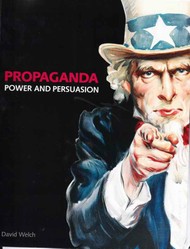

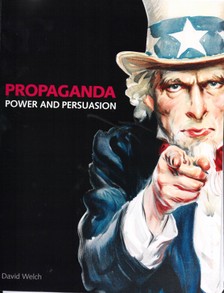

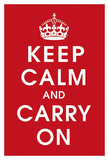




 Henry Mathews – London Artist About Whom Little is Knownon 06/30/2015
Henry Mathews – London Artist About Whom Little is Knownon 06/30/2015
 Gallery Elena Shchukina - Autumn Bliss - Works by Kyosuke Tchinai and Katusha Ostroumoff Bullon 11/18/2013
Gallery Elena Shchukina - Autumn Bliss - Works by Kyosuke Tchinai and Katusha Ostroumoff Bullon 11/18/2013
 Castiglione: Lost Genius at The Queen's Gallery, Buckingham Palaceon 11/07/2013
Castiglione: Lost Genius at The Queen's Gallery, Buckingham Palaceon 11/07/2013
 Gluten-Free Lasagne Using Vietnamese Springroll Wrapperson 07/10/2013
Gluten-Free Lasagne Using Vietnamese Springroll Wrapperson 07/10/2013
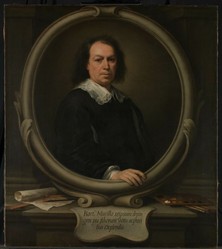
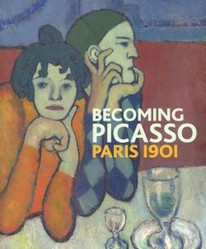
Comments
Mira - thanks for reading this article - glad you enjoyed it.
I'd never seen that Duck and Cover video. How amazing. As if that helped much. I'd known about "duck and cover" but the way it was presented . . . let's just say it was a great find for me today. Thank you for this and the article!
Thanks for reading. Yes I think this book will certainly open people's eyes.
It's actually scary how many beliefs have their roots in propaganda. Hopefully books like this will help open people's eyes.
Thanks for reading - and yes, the exhibition is absolutely fascinating.
Interesting publication and the exhibition should also be very interesting too.